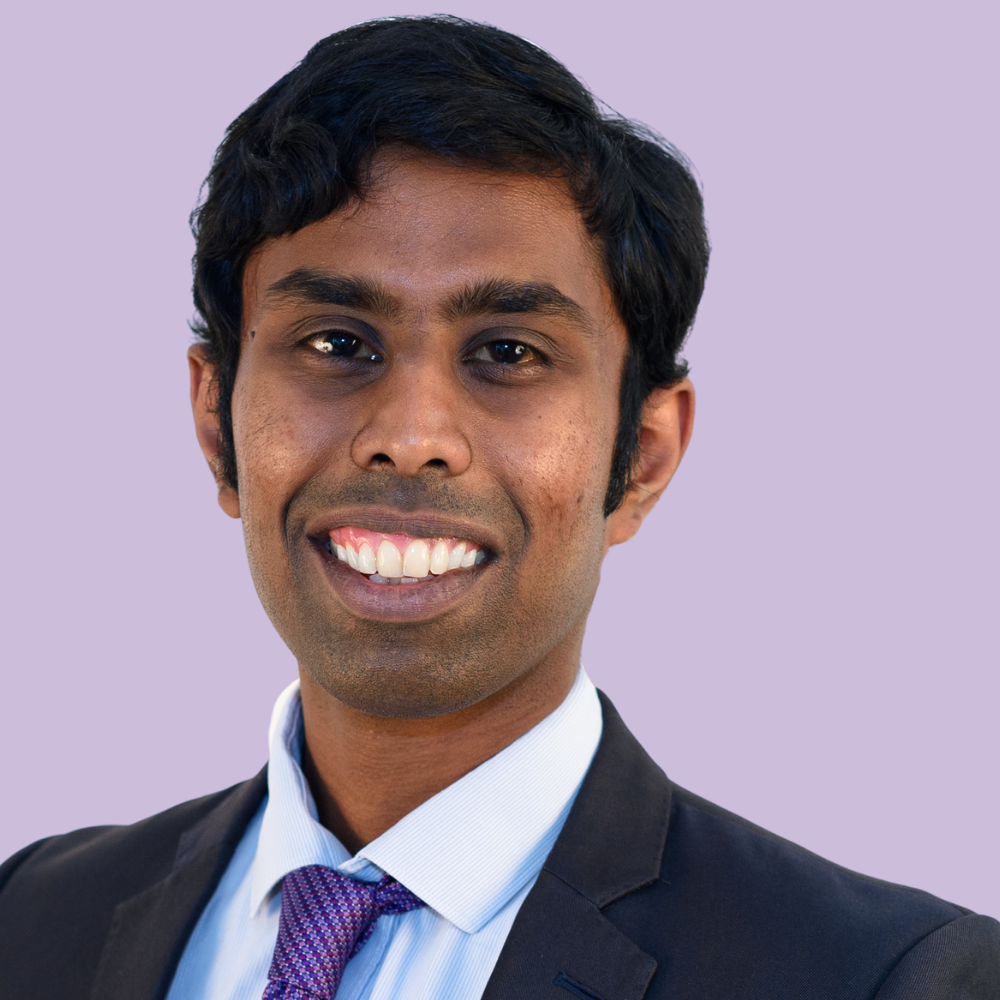WINNER | Abhay Soorya

Prior to starting his MBA at INSEAD, Abhay’s professional experience spanned software development, product management, and technical policy and standards development within the energy industry. He started out working for a finance start-up, where he developed algorithms for stock trading and then pivoted to a consumer electronics firm, where he managed and led the development of ‘smart’ lighting products. His last job was in the energy sector, where he developed regulations for and managed change within the UK smart energy program
When did you start thinking about doing an MBA?
I started thinking of an MBA after I observed that technology alone does not bring positive change. It needs to be advocated for in a socially and commercially sound way to be an effective agent of change. For example, in my last job as a technical lead within the UK’s smart energy programme, I was asked to develop a solution that helps suppliers predict energy demand more accurately. I conducted a thorough technical analysis and established consensus in various technical fora; however, I was challenged in the approval panel on purely business grounds. They included considerations on solution costs, market shares, and sunk investments. Despite being able to establish regulations in line with my propositions, I realised that I could have had a greater effect had I critiqued my solution through commercial lenses prior.
Such instances have repeated throughout my career, prompting me towards taking a step to acquire commercial reasoning skills. That was when the thought of doing an MBA coagulated in my mind.
What do you hope to achieve through your MBA experience?
I hope to achieve three things from my MBA. First, I would like to supplement my strong grasp of technology with proper commercial and business acumen. Experience dictates that effective advocacy of technology depends on having a strong commercial sense backing the technology, and I see myself working within industries in which technology is a key enabler of change. The MBA will enable me to have a balanced decision-making perspective. Second, I would like to build a network of useful professional and personal contacts, while attuning myself to cultural sensitivities in business dialogue. This is an important factor as my industry of interest – energy and environment – is increasingly interconnected and geopolitical in its nature. Third, and somewhat antithetical to the previous point, I want to understand the other industries and workstreams in which I can add value. Each time I switched sectors, I found myself learning and developing in ways that I could not have imagined prior, and the MBA experience allows one to interact with individuals of very different professional profiles, an asset that I hope will teach me the other interesting things out there!
How will you use your MBA to further your career?
My long-term goal is to shape important changes in the energy and environment industry. In five years’ time, I hope to have attained a mid-senior management position in an organisation tackling challenges in this space through the use of novel technologies, which, alongside diplomacy, is a lever to bring about positive societal change. As such, post the MBA, I want to seek techno-commercial roles in organisations advancing energy innovations for public benefit; non-profits and think tanks with a resonating mission and international engagement are of interest to me.
The knowledge and network gained from the MBA act as a supplement to my existing skillset and motivations. The MBA will help me evaluate business situations in a more balanced way, improving my ability to assess technology through many lenses and to communicate those perspectives effectively. Additionally, doing my MBA at INSEAD, which has an active energy scene and engagement with multilateral shapers of energy policy – the IEA (International Energy Agency) and IRENA (International Renewable Energy Agency), OECD (Organisation for Economic Co-operation and Development), and the DG ENER (European Commission’s Directorate-General Energy) – will accelerate my exposure to leaders as well as pressing debates in the field and inform me of the workings of these multilateral contingents. In time, I hope to use the knowledge that I gained to lead nationwide implementations of carbon-limiting policies and novel green in the UK, building on my career achievements so far.
What are your expectations of being part of the SMF network after business school?
I hope to utilise and contribute to the extensive career network and support provided by the Fellowship. Having spoken to previous Fellows and profited from mentorship throughout my career, I believe that the Executive Mentorship programme will aid my journey into senior leadership positions. Furthermore, as industries are increasingly technology-driven, access to events and resources via the SMF, RAEng, and EIBF will be invaluable resources that I hope to use.
How do you hope to support SMF after you graduate from business school?
I identify very strongly with the message of the Fellowship and aim to support the scheme in three ways. First, I hope to contribute financially, assisting with promotions of the scholarship, contributing to case studies and stories about my MBA experiences, and helping fundraising efforts. My aim is that, in time, I will be able to pass on the full value of my scholarship, in real terms, to the next generation of business leaders. Second, I hope to actively expand and strengthen the SMF network, mentoring, attending and proposing events, and acting in pro-bono roles on behalf of the SMF, RAEng, or EIBF. Third, through my involvement with the scheme, I hope to become an ambassador for Engineering, promoting its role, especially in niche domains such as policymaking and governance, in which technical knowledge is underrepresented and which would derive a significant societal and economic value if balanced.
How did you learn about the SMF scholarship?
I learned about the SMF scholarship through extensive research into sources of funding. After finding initial information on the website, I reached out to several Fellows to learn more about the scheme as well as what was expected of me if I were to receive an Award. I also started following the RAEng and Engineers in Busines website and webinars on my industry and challenges of interest.
My learnings and conversations set an initial tone and more importantly, an alignment of beliefs; I always thought that certain sectors such as policymaking and governance, traditionally not the first job choice in most student circles that I have been in, would significantly benefit if technology talent came their way, and my conversations led me to realise that the SMF is resolving this deficit as one of its goals: the development of better management and governance for public benefit.
How was your experience of applying for the scholarship?
The hardest part was the essays. Writing my reasons for an MBA, how it would advance my career, and how I met the criteria for the Award in two pages and in a convincing manner was very difficult. This stage also took a significant amount of reading into and revising of the energy industry and my post-MBA plans. By the time I got to my interview, I was familiar with most developments in the space across the world; the amount of pre-work to achieve this knowledge was challenging and surprising.
The interview stage was also challenging for three reasons. First, the succinctness (a 10 min presentation followed by 20 min of questions) required one to use one’s time very effectively. Second, in addition to ambition, this stage sought authenticity and the ability to debate and justify one’s own conclusions; for example, one of my interviewers – an INSEAD alumnus with considerable experience in the energy industry – challenged me on an assertion I had made, and I had to defend my reasons as to why I thought my statement stood. Third, it was also a multifaceted conversation, pushing my thought process into new zones. For example, while I was given ample opportunity to demonstrate my technical knowledge, I was also asked questions concerning the societal and public impact of my propositions and plans, topics aiming to craft one’s technical knowledge through the goals of the Fellowship.
I found the process very challenging but extremely rewarding. I learned a lot about my industry and about myself while making a great set of professional and personal contacts and friends.

